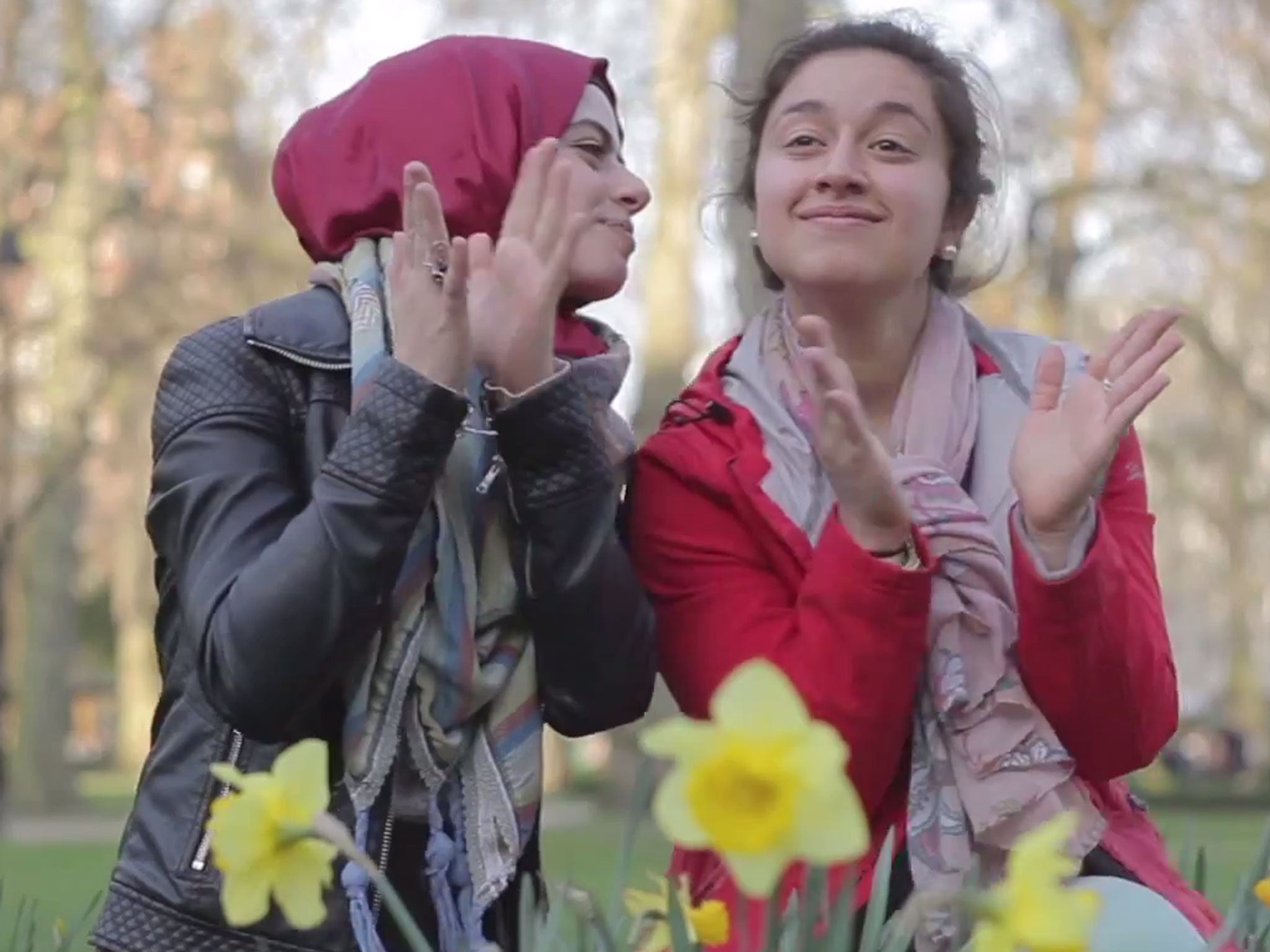I feel torn about 'Extremely British Muslims' – it's not perfect, but at least it's making an effort
At the Q&A with the producers, director and some of the participants, we were told how difficult it was to find Muslims who were willing to participate in the documentary. That didn’t come as a surprise

Your support helps us to tell the story
From reproductive rights to climate change to Big Tech, The Independent is on the ground when the story is developing. Whether it's investigating the financials of Elon Musk's pro-Trump PAC or producing our latest documentary, 'The A Word', which shines a light on the American women fighting for reproductive rights, we know how important it is to parse out the facts from the messaging.
At such a critical moment in US history, we need reporters on the ground. Your donation allows us to keep sending journalists to speak to both sides of the story.
The Independent is trusted by Americans across the entire political spectrum. And unlike many other quality news outlets, we choose not to lock Americans out of our reporting and analysis with paywalls. We believe quality journalism should be available to everyone, paid for by those who can afford it.
Your support makes all the difference.Remember that time when Fox News Pundit and “terrorism expert” Steve Emerson designated Birmingham as a “totally Muslim city” and went on to add that there are religious police who actually beat those who don’t dress according to “Muslim attire”? Well, guess what happened? A group of shirt and trouser-wearing filmmakers (because Muslims only wear clothes woven out of halal jelly-beans – I think that’s what Muslim attire is?) entered the alleged Muslim-only city and didn’t only leave unscathed but left with hours’ worth of footage about those very people!
Although, admittedly, Steve Emerson’s comments were made two years ago and he has since acknowledged the absurdity of them, these outlandish views are not isolated. Regrettably, fears of British Muslims and their supposedly segregated lives routinely dominate the news agenda in both the US and the UK.
A group of Channel 4 producers set out to dispel such ideas and created a series called Extremely British Muslims, which aired this week. Now, I can almost hear the eye-rolls of the Muslims reading this – those who, like myself, recoil at the thought of yet another “examination” of Muslims as a homogenous group which always seems to end up concluding that Ahmed is more likely than Gary to cause crime and terror in your local pub. But Extremely British Muslims attempted to steer clear of stereotyping.
I was invited to a private screening of the series last week, as well as a panel talk with some of the creators, where I was positively surprised by both the candid and unpretentious participants as well as the anti-discriminatory angle portrayed by the creators.
At the Q&A with the producers, director and some of the participants, we were told how difficult it was to find Muslims who were willing to participate in the documentary. That didn’t come as a surprise – Muslims aren’t often portrayed in the best light, and Islamophobic rhetoric from certain sections of the media has led to a general feeling of distrust throughout the community. It’s positive, however, that so many did agree to appear.
But when I watched the first episode last night, I felt a bit disillusioned. It didn’t have the nuances of the second, and it seemed to imply that Muslim women only have marriage on their minds. While participant Bella Nabi’s search for love wouldn’t resonate with everyone, it’s fair to say that it will resonate with many – because finding love is a human endeavour, rather than a uniquely Muslim one. But the nuances that exist within the Muslim community when it comes to finding a life partner were overlooked. The vast majority of us don’t envy not being able to meet potential spouses in a bar or a club.
I also found myself confounded by the term “man-dad”, which came out of the mouth of one of the more conservative British Pakistani Muslims (“I wouldn’t leave my job to be a man-dad. A child needs a mum”), and the part of the episode that sent tweeters into a frenzy – "I want my wife to feel the house is her responsibility" – really reinforced the misguided notion that Muslim women are uniformly repressed and subjugated.
The fact that we need such documentaries to "humanise" Muslims is indicative of the times we are living in (but that's a discussion for another time) and I do hope the second installation of this series – where we'll meet Was and Nav from Birmingham, who will take viewers on a journey from the bustling crowd of Ladypool Road to the shores of Kos in Greece where they're seen saving the lives of refugees entering Europe – will be a welcome change from the "1 in 5 Brit Muslims’ sympathy for jihadis" headlines we've become accustomed to seeing.
Extremely British Muslims got off to a complicated start. But from what I’ve seen, it’s a positive contribution to a documentary format which all too often slips into the stereotyped and sensationalised.
Join our commenting forum
Join thought-provoking conversations, follow other Independent readers and see their replies
Comments